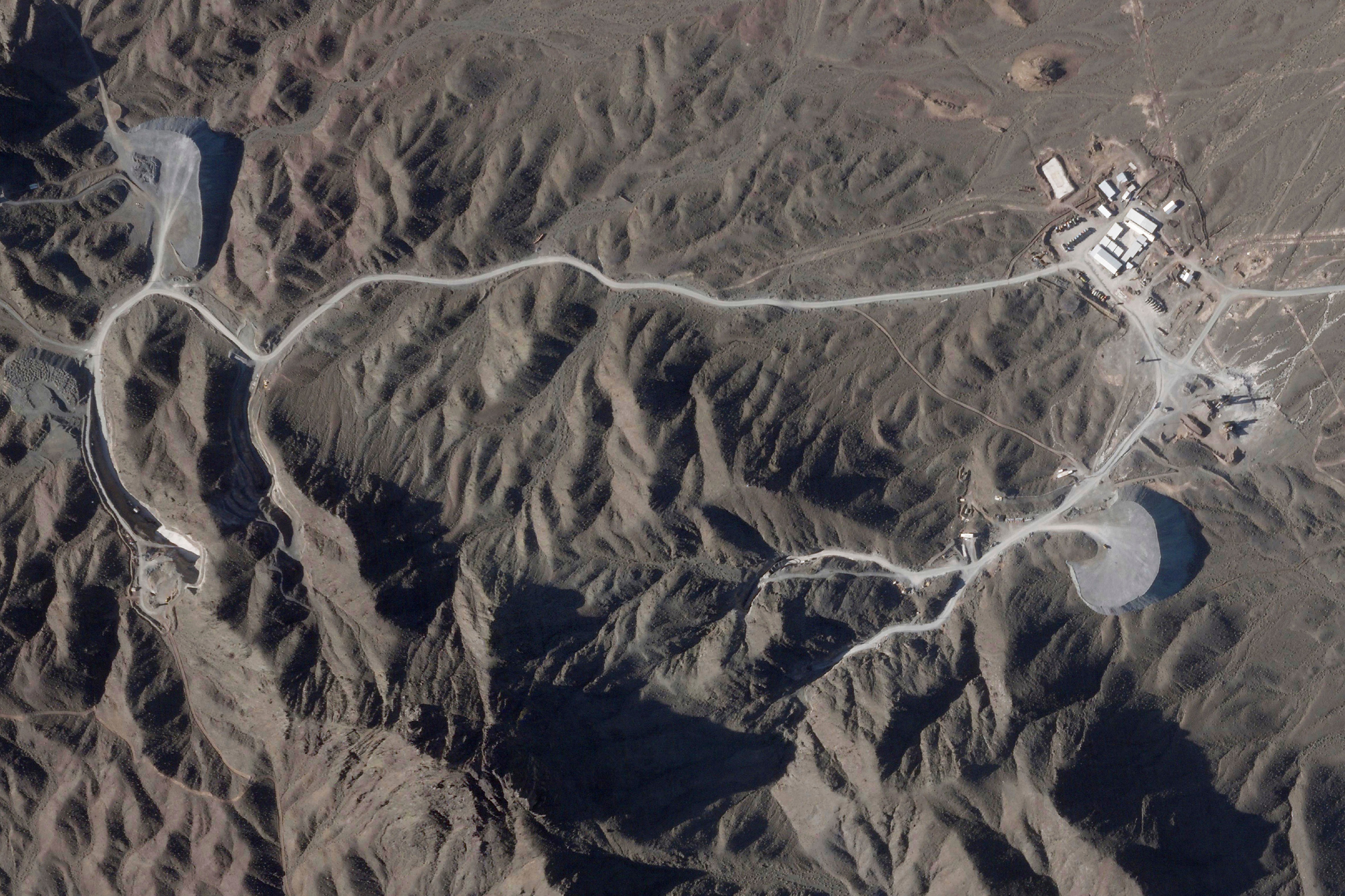Israeli national security chief: New Iranian nuclear facility not immune from attack
The Israeli government’s national security adviser says a new nuclear facility being built by Iran would not be immune from attack

The Israeli government’s national security adviser on Tuesday said a new nuclear facility being built by Iran would not be immune from attack, despite assessments by experts it will be beyond the reach of last-ditch U.S. bunker-busting bombs.
Tzachi Hanegbi made the comments in response to an Associated Press report that said the new facility appears to be as deep as 100 meters (328 feet) below ground.
Hanegbi, speaking at a security conference near Tel Aviv, said he was not surprised by the report, noting that Iran has other underground facilities. While he acknowledged the location would complicate any potential military strike on the facility, he said there are still solutions to the challenge.
“What is possible to say about this matter is that there is no place that can’t be reached,” he said.
He declined to say whether Israel had the ability to do this on its own.
“We hope we won’t get to a situation where the solution to the story of a nuclear weapon in Iran is a kinetic solution, a solution involving an attack,” he said, adding that Israel prefers to see the international standoff with Iran resolved through diplomatic means.
Israel considers Iran to be its greatest enemy and Prime Minister Benjamin Netanyahu has repeatedly said he will not allow Iran to develop a nuclear weapon. He has said international diplomacy should be accompanied by a serious military option and hinted that Israel would be prepared to strike Iran on its own if necessary.
Photos and videos of Iran’s new facility from Planet Labs PBC show Iran has been digging tunnels near the Natanz nuclear site, which has come under repeated sabotage attacks over the years. Excavation mounds at the site suggest the facility could be between 80 meters (260 feet) and 100 meters (328 feet) under the ground, according to experts and AP’s analysis.
The Islamic Republic denies it is seeking nuclear weapons, though officials in Tehran now openly discuss their ability to pursue one.
With Iran now producing uranium close to weapons-grade levels after the collapse of its nuclear deal with world powers, the installation complicates the West’s efforts to halt Iran from potentially developing an atomic bomb as diplomacy over its nuclear program remains stalled.
The construction comes five years after then-President Donald Trump unilaterally withdrew America from the nuclear accord. Since then, Iran has stepped up its uranium enrichment far beyond the limits of the accord. Experts believe it is just a short step from reaching the 90% enrichment threshold of weapons-grade uranium.
Uranium enrichment is a key element of producing a nuclear bomb. Israeli experts believe Iran would need additional time, up to two years, to develop the means to deliver and detonate a warhead.
Addressing the same conference, Israel’s military chief, Lt. Gen. Herzi Halevi, said Israel is closely monitoring Iran’s nuclear program and reiterated that the military is prepared to take action.
“There are possible negative developments on the horizon and that can bring about action,” he said. “We have capabilities. Others have capabilities, and this is a very significant and important matter.”
Bookmark popover
Removed from bookmarks